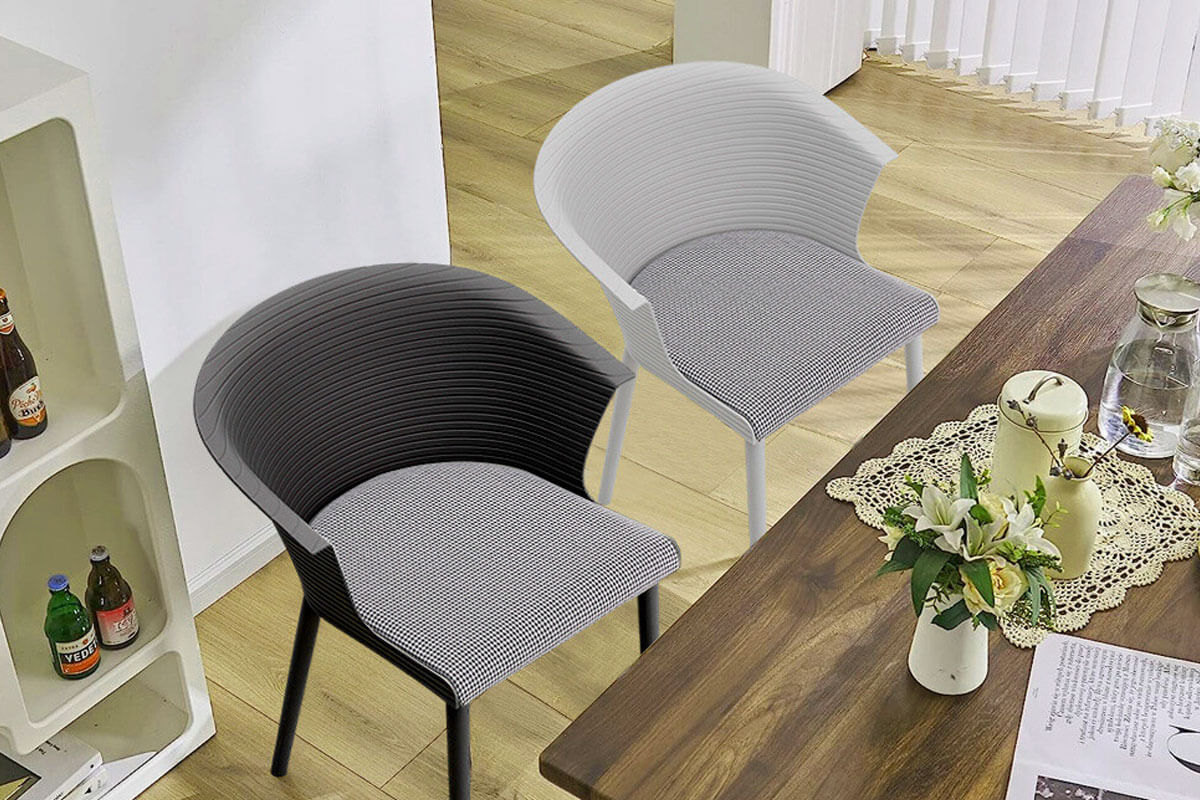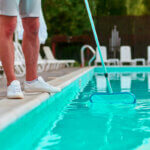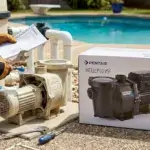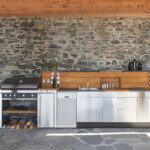Outdoor stackable plastic chairs combine convenience, durability, and affordability for any patio or garden space. These lightweight weather-proof garden chairs stack easily for storage, resist sun and rain damage, and cost much less than metal or wood alternatives, making them perfect for both casual and commercial outdoor use.
Benefits of Choosing Outdoor Stackable Plastic Chairs
Plastic stackable chairs solve three major outdoor furniture problems: storage space, weather damage, and high replacement costs.
Space-saving storage tops the list of advantages. You can stack 10-15 chairs in the space one regular chair occupies. Portability comes second—most chairs weigh just 7-11 pounds, so moving them around your patio ensemble takes minimal effort. Weather resistance means these chairs handle rain, snow, and sun without the rust, rot, or fading that plagues other materials.
Cost effectiveness makes them practical for families and businesses alike. Basic monobloc chairs cost approximately $3.50 to produce in 2011 , keeping retail prices low. You can buy a complete set for what one metal chair costs. Lightweight stackable seating also works great for events—you can quickly set up extra seating for parties and store chairs away when the gathering ends. Unlike their antonym of heavy wrought iron seating, these molded seats offer effortless mobility for any occasion.
What to Look For: Materials, Structure, and Comfort
Polypropylene chairs and resin stackable chairs represent the two main thermoplastic categories, each with distinct benefits from their unique polymer composition.
Polypropylene offers flexibility and impact resistance. High-density polyethylene (HDPE) and polypropylene are designed to withstand UV rays , and bounce back from bumps without cracking in cold weather. Resin stackable chairs provide superior UV protection and maintain their color longer outdoors. Commercial-grade resin chairs include UV inhibitors and meet ASTM F 1561 Class B ratings for strength , making them suitable for poolside and patio use.
Injection-moulded plastic creates stronger chairs than cheaper alternatives through precise fabrication methods. The molten plastic flows to all parts of the tool through the gate located in the seat , ensuring uniform thickness. Look for chairs with ergonomic backrests that curve to support your spine. Molded seats with slight contouring prevent the flat, uncomfortable feel of basic designs. Weight capacity matters too—many chairs can support significant weight, often over 300 pounds .
Materials Comparison
Recycled plastic patio chairs represent the eco-friendly choice. Companies like Keter now use 41% recycled content and aim for 55% by 2025 , reducing environmental impact. These chairs perform identically to virgin plastic versions while supporting sustainability goals through circular economy principles.
Standard polypropylene costs less upfront but may fade faster. UV-resistant plastic seating with fade-inhibiting resin costs 20-30% more but maintains appearance for years longer outdoors, proving that premium furniture investment pays off over time.
Durability and Weather Performance
UV-resistant plastic seating determines how long your chairs maintain their color and structural integrity outdoors, representing the hypernym of all weather-resistant outdoor furniture.
Quality outdoor plastic chairs include UV stabilizers that prevent the chalky, faded appearance common in cheap alternatives. Grosfillex resin chairs won’t fade, crack or warp over time, even with exposure to the sun, rain and wind . Breathable design with ventilation holes prevents water pooling and allows air circulation, while the slatted construction enhances both comfort and drainage.
Temperature resistance varies by material. High-quality UV-resistant plastics can last anywhere from 5 to 15 years in outdoor environments , depending on climate conditions. Weather-proof garden chairs should withstand temperature swings without becoming brittle—a common failure mode in cheaper alternatives.
The etymology of “monobloc” comes from mono- (“one”) and bloc (“block”), referring to single-piece construction that eliminates weak joints. Modern designs weigh 2.7 kg (6.0 lb), half that of standard makes, and can be stacked 24 high .
Price and Value: From Budget to Premium Options
Cheap plastic outdoor chairs start around $15-25 for basic designs, while commercial-grade options reach $75-150 per chair, illustrating the polysemy of “value” in outdoor furniture.
Budget outdoor furniture includes simple monobloc designs perfect for occasional use. These chairs work well for kids’ areas or temporary seating but may lack comfort features. Mid-range options ($30-60) add ergonomic backrest designs, better UV protection, and higher weight capacities through superior manufacturing precision.
Premium recycled plastic patio chairs justify higher prices through enhanced durability, comfort features, and environmental benefits. Retail prices for quality monobloc chairs now average around eight euros for basic models, while designer versions can cost significantly more.
Consider cost-per-use rather than initial price. A $75 chair lasting 8 years costs $9.50 annually, while a $20 chair lasting 2 years costs $10 yearly. Quality chairs often provide better lifetime value despite the connotation of plastic being disposable.
Maintenance and Storage Tips
Portable plastic chairs require minimal maintenance but benefit from regular cleaning and proper storage as essential chair care components.
Clean chairs monthly with mild soap and warm water. Avoid abrasive cleaners that scratch surfaces and create areas for dirt accumulation. For stubborn stains, use a soft brush with baking soda paste. Weather-proof garden chairs can stay outdoors year-round, but cleaning extends their lifespan and prevents the buildup of organic matter that can cause staining.
Stackable designs prevent water puddling and dry faster thanks to slatted construction . Stack chairs properly to prevent warping—place them on level ground and avoid exceeding manufacturer recommendations. Most chairs safely stack 8-12 high. Store stacked chairs in shaded areas during peak summer to prevent UV damage to contact points.
During winter storage, keep chairs in unheated spaces rather than warm areas where temperature swings cause expansion and contraction. Cover outdoor stacks with breathable fabric—not plastic tarps that trap moisture and create conditions for mildew growth.
Stylish and Practical Enhancements
Modern outdoor plastic chairs go beyond basic white monobloc chair designs, offering style and comfort options that transform simple seating solutions into attractive outdoor decor.
Color choices now include earth tones, vibrant blues, and contemporary grays that complement outdoor décor. Breathable design features like perforated seats improve comfort during hot weather by enhancing airflow circulation. Some chairs include built-in cup holders or tablet slots for convenience—rare attributes that distinguish premium models.
Cushions transform basic chairs into comfortable seating. Choose outdoor fabric cushions with quick-dry foam that resist mold and mildew. Tie-on styles work better than loose cushions that blow away. Ergonomic backrest designs reduce the need for additional cushioning through superior lumbar support.
Designer classics like the original polypropylene stacking chair bring style to functional seating. Since the 1970s, billions of these chairs have been manufactured worldwide , proving their enduring appeal. Mix colors or styles for visual interest while keeping the convenience of stackable storage—creating a harmonious blend of aesthetics and practicality.
Bottom line: Choose outdoor stackable plastic chairs based on your usage frequency and budget. For occasional use, basic polypropylene works fine. For daily outdoor living, invest in UV-resistant resin chairs with ergonomic features. Either way, you’ll get weatherproof seating that stores easily and costs far less than alternatives.





